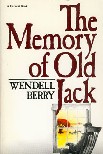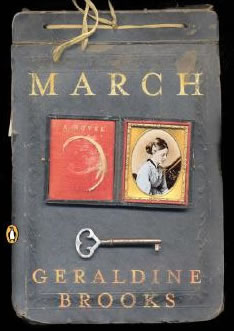The Memory of Old Jack
Andy is aware as always that he approaches a past much older than his own, that he cannot remember. But it is a past that, listening to Old Jack’s and his grandparents’ talk, he can enter with his imagination, and in that way he has taken possession of it. Since boyhood he has been Old Jack’s listener, the student of his memory. And there has come to be a part of his mind that is spacious and old…
–Wendell Berry, The Memory of Old Jack (1974)
 It could easily be Mr. Berry’s self-portrait, this description of Andy Catlett as he assimilates Old Jack’s history, absorbing through the ear a yeoman farmer’s way of life that can no longer be lived. Jack Beechum, born in 1860 and remembering his life 92 years later on the day of his death, stands for the very best of a pre-industrial “culture and agriculture” that Wendell Berry memorializes in his Port William chronicles, offers as a standard for evaluating “progress” in his nonfiction prose, and, to the extent that it’s possible, protects and implements in personal practice.
It could easily be Mr. Berry’s self-portrait, this description of Andy Catlett as he assimilates Old Jack’s history, absorbing through the ear a yeoman farmer’s way of life that can no longer be lived. Jack Beechum, born in 1860 and remembering his life 92 years later on the day of his death, stands for the very best of a pre-industrial “culture and agriculture” that Wendell Berry memorializes in his Port William chronicles, offers as a standard for evaluating “progress” in his nonfiction prose, and, to the extent that it’s possible, protects and implements in personal practice.
This week I’ve been rereading this book for my book club meeting in a few weeks, where it’s my turn to “lead” the discussion. I’ve loved reading this book again. When I first read it in 1995 or 96, I was dating someone seriously who did not share my faith or my values. This eulogy and tribute to Old Jack, a husbandman whose failure in marriage is recounted with great compassion, helped me to see that I was trying to be someone I’m not. Old Jack is unapologetically and unalterably himself, and this extended acquaintance with him was just what I needed to shake me awake.
Rereading the book years later, I was moved again by the tragedy of this couple: “He won her with his vices, she accepted him as a sort of ‘mission field,’ and it was the great disaster of both their lives.” More than this, I felt that I was able to absorb more of the full force and vision of Old Jack’s tale now that my personal circumstances don’t keep me zeroed in on that one part of the plot. Jack’s life, even in this elegiac and to some extent idealized fictional vision, bears the marks of integrity in its equal shares of pain and joy, failure and fulfillment. And it seems to me that Mr. Berry accomplishes a rare thing in writing about even Jack’s vices and failures without marring our admiration of his character, and without being judgmental.
Rather than summarizing more, I’ll just note some of the things we may talk about during our book club discussion, if and when the conversation lags:
- If someone asked you what this book was about, what would you say?
- The narrator has great compassion for some things, but not others. What does he save his scorn for? His praise?
- What vision of community is offered here? How is it different from community we may experience through church, work, neighborhood, family — ? Is the vision depicted here practicable — now, or given a few alterations?
- What does the story convey through Ruth and Rose, two women in Jack’s life?
- Is Wendell Berry advocating a return to pre-Civil War, pre-industrial agriculture?
- To what extent is this fictional vision realistic? To what extent is it idealized? Is it unfair to any of the parties represented?
- This author is not just a writer of fiction, but of nonfiction prose and poetry. How would you describe his writing here? What’s distinctive about it? What is its effect on the reader?
- How does Christianity come off in the story?
- Who stands out as a favorite character?
- What do you dislike about this book?
That’s all I can think of for the moment.
Speaking for myself, who have read all of Wendell Berry’s novels and stories, I think this is his finest work of fiction. It moved me to tears more than once as I read, and I have to admit, that’s unusual. Perhaps I’m hardened by excessive reading, but there are few books that evoke a strong enough reaction from me that it would be perceptible, either by laughter or tears, to anyone sitting in the same room with me as I read. When I reached the end of this one, how I wished I had known Old Jack. And how I felt his loss.

